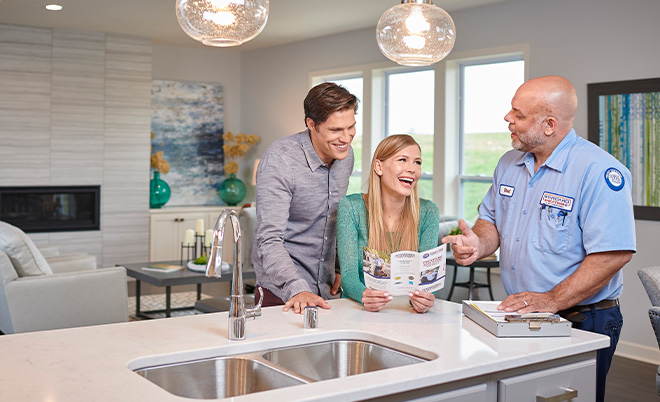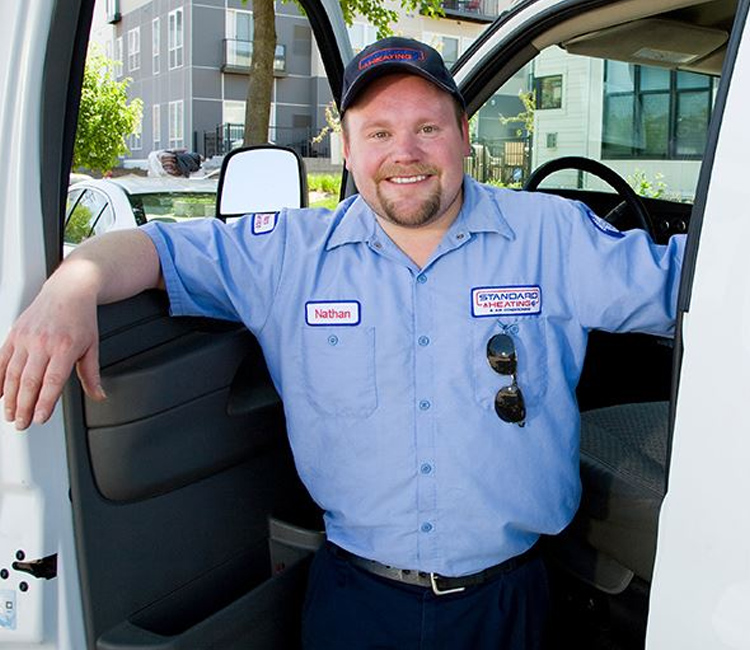
Tax Credits & Rebates
You May Qualify for Up to $3,200 in Tax Credits
If you’re thinking about investing in energy-efficient HVAC upgrades in your home, you might qualify for a financial incentive to do so.
The Inflation Reduction Act (IRA) provides tax credits and rebates for homeowners who upgrade essential home systems, including HVAC systems and appliances. These credits serve as a powerful tool to encourage energy-efficient choices, providing homeowners with substantial savings while reducing their carbon footprint.
Depending on your unique tax situation, you could qualify for the following 25C Federal Tax Credits:
- Up to $600 for a qualifying standalone air conditioner or furnace
- Up to $1,200 for a qualifying air conditioner/furnace combo
- Up to $2,000 for a qualifying heat pump (air-source heat pump or ductless mini-split)
- Up to $2,600 for a qualifying ducted air-source heat pump and furnace combo
By taking advantage of the right tax credits, you may reduce your tax liability by a total of up to $3,200!
Remember: Standard Heating & Air Conditioning can help you determine if your equipment qualifies according to the 25C criteria, but we can’t provide assurance that you will personally qualify to claim credits. It’s recommended that you speak with a tax professional about your specific situation to determine your individual tax credit eligibility.
For more information, call (612) 324-1015 or contact us online.


Frequently Asked Questions About HVAC Tax Credits
If you’re interested in upgrading your home’s HVAC system to take advantage of the IRA tax benefits available, you probably have a lot of questions.
Here are a few questions we commonly get from our customers:
Am I qualified to claim a tax credit for my new HVAC appliance?
Standard Heating & Air Conditioning can tell you if an individual piece of equipment qualifies for a tax credit, but we can’t determine if you qualify to claim that credit. Only a qualified tax professional can assess your individual eligibility for any tax credit or rebate program.
Can I Upgrade Multiple Properties to Claim Credits?
You must upgrade your primary residence to claim the tax credit. Rental properties, vacation homes, and investment properties will not qualify for this credit.
Which Records Should I Keep to Document My Purchase?
If you plan to claim tax credits, keep and maintain all documentation relevant to your HVAC purchase to protect against a tax audit.
Will the Tax Credit Increase My Tax Refund?
The tax credit can only reduce your tax liability; it will not add to your tax refund if you are expecting one.
Are There Annual Limits for IRA Tax Credits?
Yes. The maximum total annual credit amount for heat pumps is $2,000, and there is an additional $1,200 maximum annual amount for air conditioners, furnaces, boilers, and other household equipment. You can combine projects from either of these categories to claim up to $3,200 in annual tax credits.
Providing Comfort Since 1930
Read Our Reviews


-
"We recommend them wholeheartedly!"- Carol R.
-
"I have been using these guys for years across multiple homes."- Jordan O.
-
"I recommend them to anyone looking for a new furnace or maintenance work."- Judy E.
-
"The installation went very smoothly."- Sylvia H.

Other Reasons to Consider an Upgrade
Beyond the potential tax savings, there are other reasons to consider upgrading your HVAC equipment to more energy-efficient models.
Here’s a look at additional benefits to consider:
- Better at-home comfort: From better temperature control to improved air quality, newer HVAC equipment can provide your home with renewed indoor comfort.
- Lower energy bills: When you choose HVAC appliances that use less energy, you can save money on your monthly bills with your regular use.
- Long-term cost savings: Upgrading now to newer equipment means replacing older appliances that may be prone to breakdown and costly repairs.
- Reduce your environmental impact: The HVAC appliances that qualify for IRA tax credits use less energy compared to other models on the market, which means you can reduce your home’s impact on the environment.

Contact Us Today to Learn More
We at Standard Heating & Air Conditioning are proud to help our customers get the most out of our services. When you reach out to us for help, we can answer many other questions you may have about IRA tax credits and the programs available that can help you save more money.
Get in touch with us today to learn more.